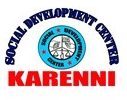Volunteer Experience
By Lynette Nam
In 2012, the long running conflict in Burma finally appears to be nearing its end. An ongoing series of political, economic and administrative reforms undertaken by the military-backed government in Burma in the past two years has buoyed hopes that the decades of violence and international isolation could soon be in the past. In this climate of hope and optimism, it may be easy to overlook the tens of thousands of refugees displaced on the Thai/Burma border. Look beyond the news headlines, and it is all too clear that the recent developments, while promising, have not filtered through to all the ethnic states, where clashes between Burmese troops and local insurgents continue to disrupt the pace of life.
It was against this backdrop that I travelled to a remote village next to Karenni Refugee Camp 1 in early October 2012, to work as a human rights trainer at Karenni Social Development Center (SDC).
Karenni Refugees
One of the many ethnic groups in Burma, the Karenni people have been disempowered and disenfranchised, and subject to widespread violence, land alienation and forced labour for decades. As a result, in the last twenty years, more than 22,000 Karenni people have made the journey to the Thai/Burma border to claim refugee status, with many more living as Internally Displaced Persons or living in hiding inside Karenni State, Burma.
Surviving day to day on food rations with no freedom of movement and virtually no employment opportunities, the refugees in Karenni Refugee Camp 1 face an uncertain future. For the thousands of young Karenni refugees, their choices are limited, with only three post-10 schools spread across two camps, and no access to higher education or training. It is not surprising then that most Karenni people have no knowledge of human rights – let alone how to protect their rights.
Karenni Social Development Center
SDC was established in 2002 to address this lack of knowledge. The students apply to take part in a ten month course, where they are taught the core subjects of human rights, environmental protection and rule of law. The students are also given the task of conducting field research and writing reports on the human rights situation in their wider community.
As a human rights trainer, I am teaching conflict resolution, nonviolent social change and advocacy and campaigning to 30 bright and ambitious young Karenni refugees. Hidden behind their broad smiles are stories of violence and loss, yet each and every one of them have impressed and inspired me with their thirst for knowledge and desire to become agents of positive social change.
The students graduate from SDC armed with knowledge of human rights and the confidence to disseminate that knowledge among their communities. Many of the past students have gained employment as community leaders and teachers within Karenni Refugee Camp 1, while others have taken the risk and returned to Karenni State to work as mobile trainers.
SDC’s Valuable Contribution
SDC is providing a generation of Karenni youths with knowledge of the basic political and legal concepts that underpin a just and equal society, and through the students, entire communities are empowered to establish social institutions to ensure that their human rights are protected. My current students tell me they want to be lawyers, politicians, engineers and teachers – they tell me they want to tackle the big issues, such as constitutional reform and climate change. Difficult though it is for them, I am confident that, as Burma embarks on a long and winding road of recovery and reform, my students will use their knowledge gained at SDC to play a real role in rebuilding a free and peaceful society.
